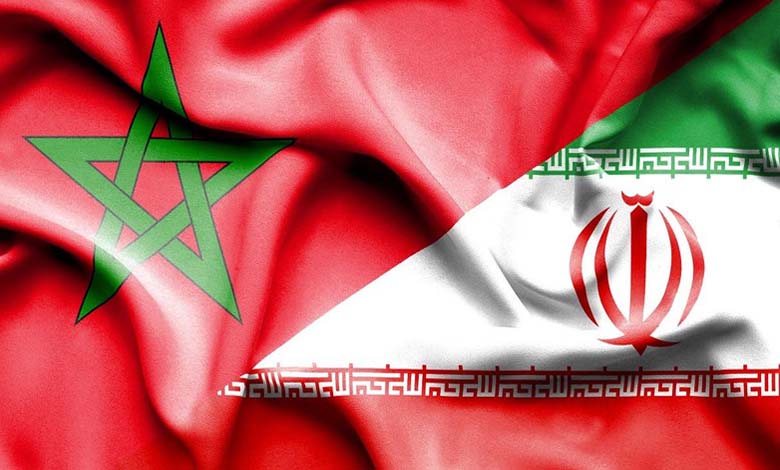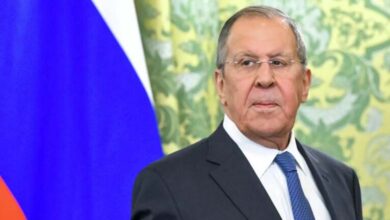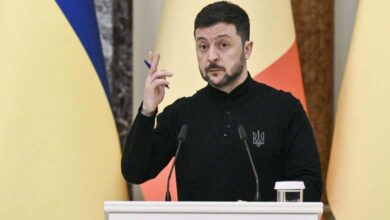Morocco’s Recognition of the Sahara’s Sovereignty: A Precondition for Normalization with Iran
Morocco’s approaches to various issues fundamentally differ from Iran’s political strategies.

Recent media reports have highlighted Iran’s attempts to mend relations with Rabat after years of diplomatic severance. This fallout stems from accusations of Tehran’s military collaboration with the Polisario Front, a matter Morocco considers a red line, as the kingdom ties its foreign relations to the recognition of its sovereign rights over its entire territory.
-
Morocco and Mauritania Explore New Avenues for Military Cooperation
-
An Algerian-Iranian rapprochement on the verge of discord and tensions with Morocco
Sources indicate that following the recent Saudi-Iranian rapprochement, Tehran seeks to reconcile with Rabat. For Morocco, territorial integrity and sovereignty are inviolable principles, and any support for separatist movements, such as the Polisario, is unacceptable. Tehran appears to be reassessing its strategies after losing ties with Rabat due to alleged support by Hezbollah, Iran’s primary proxy, for the Polisario via the Iranian embassy in Algeria—an act Morocco perceives as a direct threat to its security and stability.
The diplomatic break between the two nations dates back to May 2018, when Morocco officially severed ties with Iran. Rabat claims to have offered Tehran several opportunities to reconsider its positions and establish relations based on mutual respect for sovereignty and non-interference.
-
Extension of MINURSO Mission: Diplomatic Victory for Morocco and Setback for Algeria
-
The Sahara, a pivotal file for determining the trajectory of relations between Paris and Rabat
Former Iranian Foreign Minister Hossein Amir Abdollahian, who died in a plane crash with President Ebrahim Raisi, had previously expressed Iran’s desire to normalize relations with Morocco. This statement raised questions about the feasibility and sincerity of such a rapprochement, as well as its strategic implications for the MENA (Middle East and North Africa) region.
Morocco strives to persuade distant countries to adopt a neutral stance on the Moroccan Sahara issue. However, nations like Iran have supported the Polisario, leading to unbalanced policies and prompting Rabat to cut diplomatic ties.
-
Morocco confronts Algeria’s claims regarding the Sahara at the United Nations
-
Sánchez: “The Moroccan initiative is the most serious basis for solving the Sahara conflict”
The kingdom is also committed to safeguarding its sovereignty, territorial integrity, and national stability against the spread of Shiism. At the same time, it seeks to maintain strong alliances while countering Iran’s ambitions to expand its regional influence and export its revolution to strategically significant regions.
Amid increasing regional pressures, Iran appears to view normalization with Rabat as essential. Iran’s new rhetoric signals a recognition of the need for a “neutral approach” in its relations with Morocco.
-
Morocco reaffirms its commitment to the ceasefire agreement in the Sahara
-
French Business Leaders Explore Investment Opportunities in the Moroccan Sahara
Speculations about a potential rapprochement surged following the Saudi-Iranian normalization agreement, brokered by China in March 2023. However, Moroccan officials have not officially addressed the potential impact of this on their relations with Tehran.
In June 2023, Iran’s Foreign Minister stated his country’s willingness to improve ties with Morocco and Egypt, emphasizing that improving relations with Muslim nations remains a priority.
However, analysts argue that the fundamental divergences between Moroccan and Iranian policies make such rapprochement unlikely in the near term.
-
American Report: The Fabricated Sahara Conflict Has Reached Its End
-
“The Moroccan Sahara”: Macron supports Rabat’s plan
According to international expert Borak Chadi Abdessalam, “There are currently no common grounds to initiate a political dialogue between the two countries. Iran’s interventions in Moroccan affairs led Rabat to adopt a strategic severance to counter Tehran’s subversive agendas in the region.”
Morocco, adhering to its diplomatic principles, rejects cooperation with a regime whose strategy undermines states and supports armed militias, as seen in Iraq, Syria, Lebanon, and Yemen. Rabat demands concrete actions from Iran, including ceasing all forms of support for the Polisario and its partners, such as Hezbollah.












